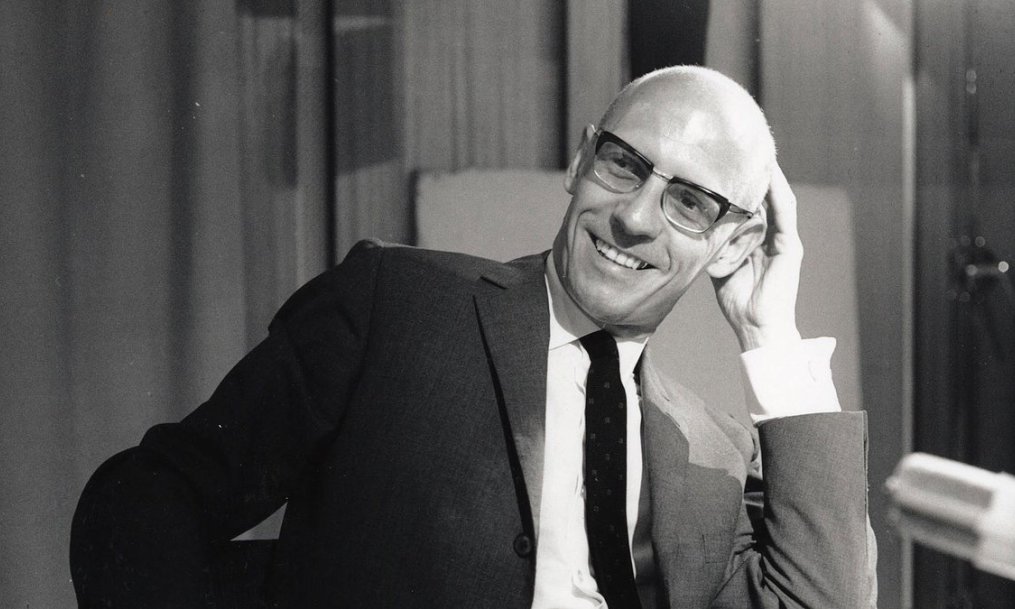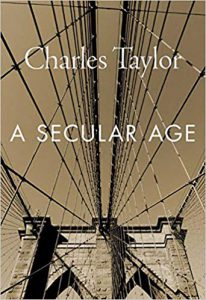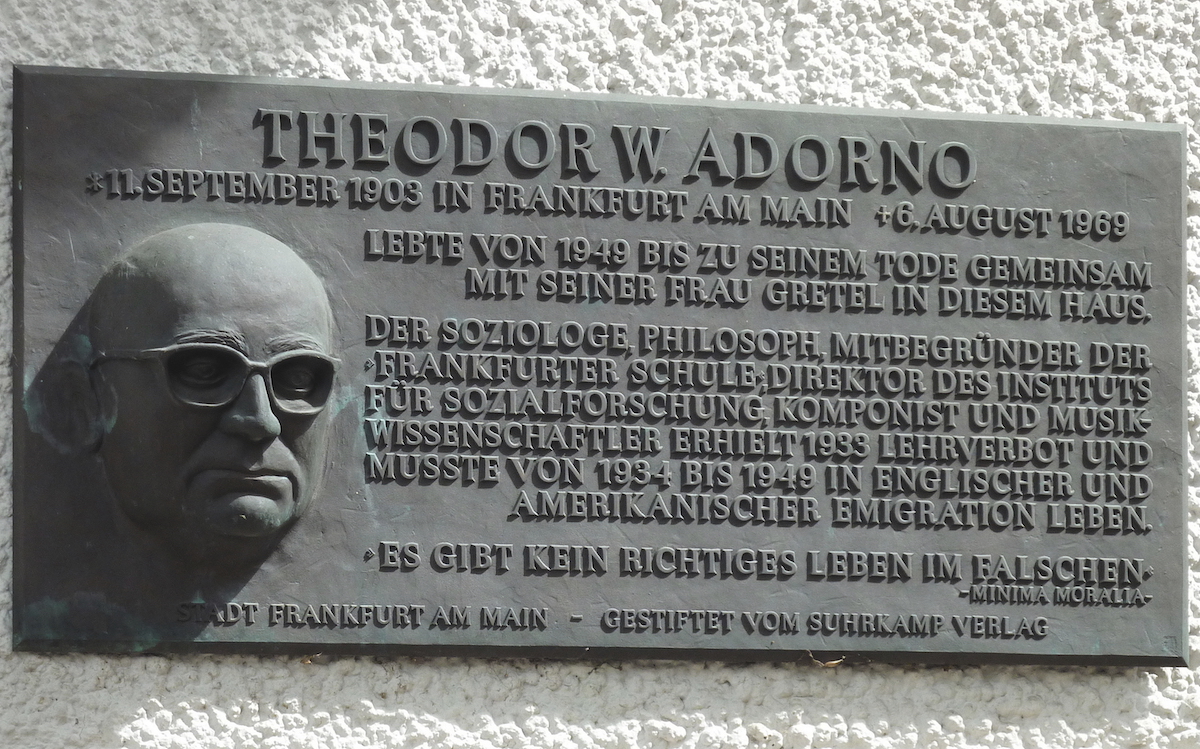recent
Postmodern Philosophy is a Debating Strategy
The Foucauldian method, invoking a hermeneutic of suspicion, works by unveiling or demystifying the relations of power that constitute claims to truth.

In a recent article, Matt McManus drew a valuable distinction between postmodern culture and postmodern philosophy. Postmodern culture, he argued, was first theorized by neo-Marxists to refer to what they saw as a new phase of capitalism, characterized by heightened skepticism and a preoccupation with subjectivity. However, one need not adopt Marxist social theory in order to agree with the basic point that the social conditions which characterize twenty-first century liberal democracies make it difficult to take our beliefs for granted. The unprecedented degree of cultural and religious pluralism on offer in developed nations today undoubtedly has an impact on what we can take to be certain.

Charles Taylor in his masterpiece A Secular Age called this process “fragilization,” the basic idea of which is that it is more difficult to believe in something wholeheartedly when that belief is not shared by the people one is surrounded by (indeed, we might call this sociology of knowledge 101). So, there is a real sense in which we do in fact live in a post- (or what I would prefer to call “late”) modern culture, whereby our awareness of the existence of “other options”—made especially acute as a result of recent digital technologies—fragilizes our beliefs, leaving us without firm epistemic anchors. This illuminates a significant but seldom acknowledged reason why postmodern philosophy finds traction today.
So what characterizes postmodern thought? In The Postmodern Condition: A Report on Knowledge, Jean Lyotard defines postmodernism as “incredulity towards metanarratives.” According to Lyotard, postmodernism is a critical response to the presumption of ultimate truth embodied in modernist doctrines as wide ranging as Enlightenment liberalism, Marxist Socialism, and Religious Fundamentalism. Postmodernists follow Friedrich Nietzsche in endorsing a radical epistemological skepticism embodied in what is often called a “hermeneutics of suspicion.”
While I think postmodern philosophy is interesting and even sometimes instructive, I am convinced that in practice it is often incoherent, not to mention politically self-refuting. But this raises the question: why, if postmodern philosophy has been shown to be so intellectually and politically confused (by observers on both the Left and Right), does it remain so popular?
“I Have No Worldview”
In the summer of 2017 I attended a conference on Science and Religion at Oxford University. In a session on the concept of the “secular,” I listened to a speaker give a paper that, in fine postmodern fashion, went about deconstructing all existing definitions of the “secular” within the academic literature. This speaker applied a hermeneutics of suspicion with great skill to these discourses, identifying how they were not only socially constructed, but also how they served the nefarious ends of their various proponents.
It was a well-argued paper that left me impressed but also puzzled. The speaker had deconstructed all of these accounts but supplied no alternative account. After the session ended I approached him to inquire about this. But he just stared at me blankly, as if I had just asked him how to tie my own shoelaces. This was not his job, he told me. He seemed to believe an alternative account to be unnecessary. I wanted to know what underlying values and beliefs were motivating his critique so I asked him to describe his worldview. He responded, “I have no worldview.”
At the time, this response shocked me, but I generously took it to mean something like: the way I see the world does not fit neatly into your constructed categories, or, I won’t let myself be boxed in. However, having since read scores of books informed by postmodern philosophy and debated the topic with countless disciples of Foucault, I have come to think this speaker’s statement meant something quite different.
Postmodern Philosophy as Debating Strategy
It seems to me that postmodernism is popular—especially among academics—not merely because of the social and cultural conditions of late modernity, but because it is immensely powerful as a tool or strategy of argument. For how can you possibly refute a person’s position when they deny even having one? In turn, arguing with someone who subscribes to postmodern thought is like fighting someone who has nothing to lose. There is no winning.
I have experienced this repeatedly in graduate seminars and at conferences. I will make a substantive judgment about history or some event, and some postmodern junkie will reply that I am merely reproducing a socially constructed discourse. In these moments, it’s hard to know what to do. I usually end up keeping quiet, but then I can’t help thinking the person who just deconstructed my truth claim doesn’t actually believe what they’re peddling. Because how could you possibly live a human life really believing that there is no ultimate truth?
Postmodern philosophy affords a position of power within the academy because it arms the scholar with tools to pick apart everyone else’s work, without leaving itself open to objections or refutations. By feigning a position of critical neutrality, the postmodern critic can stand back and deconstruct everyone else’s discourses, as if they occupy an archimedean point.
But the postmodern critic has entered into a Faustian bargain: they have traded in their humanity—rooted in the need for meaning and coherence—in order to win arguments. I realize this sounds a bit over the top, but I can’t think of a better way to put it. Postmodern philosophy gives you the power to crush any intellectual opponent because it allows you to make the case that everything they believe is socially constructed, corrupt, oppressive, or all of the above.
As a result, a commitment to postmodern thought is likely to breed one of two things: severe existential angst and disenchantment or hypocrisy. Based on my observations I have seen both of these play out in the lives of fellow grad students. Some take postmodern epistemology seriously and this leads to a life of ironic distancing (nothing matters, but whatever) or in some instances serious mental illness like crippling anxiety and depression. Whereas others only use it rhetorically, all the while living life like everyone else—as if truth does exist and also matters. Indeed, I think the most famous postmodern thinkers fall squarely in this second category and thereby produce what I want to call vigilante scholarship.

Vigilante Scholarship
The vigilante scholar, in their quest for “justice” is a solitary figure; a byproduct of their perceived epistemic superiority. They need not reveal how they came to hold the views they do, nor justify them, for they know what is just. Their gift is their ability to see what no one else can, and their courage to speak “truth to power.”
We can see an example of this in Foucault (or at least the version of him which has been popularized). The Foucauldian method, invoking a hermeneutic of suspicion, works by unveiling or demystifying the relations of power that constitute claims to truth. For Foucault, the modern school system is not a public service designed to increase the autonomy of individuals, but a bureaucratic surveillance system that disciplines individuals into accepting the oppressive conditions of modernity. And the discipline of psychology is not a field of knowledge that teaches us about the human condition but rather a regime of truth that normalizes certain forms of subjectivity thereby pathologizing what does not fit.
The key here is that Foucault was offering an evaluation of modernity. But we might ask: how can one evaluate something without having some positive standard with which to compare it? Good question. My argument is that Foucault does have a standard, it’s just that he doesn’t admit it. This is also true of the speaker I met at Oxford. These postmodern thinkers therefore execute a very sly sleight of hand: in one breath they tell us all claims to truth are mere claims to power and therefore we ought to give up the quest for truth itself, while in another they claim to have some enlightened view of reality which allows them to critique what they see as unjust or oppressive.
We see this over and over again in postmodern works. The scholar begins by deconstructing existing discourses, as if from a position of mere skepticism. However, he is simultaneously making the case that these are corrupt or oppressive in some sense, thereby endorsing some (implicit) normative standard. But you can’t have it both ways. Either you endorse a position and critique others from there, or you commit fully to your epistemic skepticism. I have no problem with those who disrupt our historical narratives in order to supply better ones. But I find it frustrating when criticism and deconstruction become their own ends, as if human life—both individual and collective—can survive without shared frameworks of meaning and truth.
Although there do remain some diehard postmodernists out there, my guess is that very few people are actually postmodern in anything like a pure or consistent sense. That is, while we all might be postmodern in the cultural sense—that is, susceptible to the process of fragilization, which I outlined above—almost no one is wholly postmodern in the philosophical sense. Therefore much of what we see being advanced under the banner of “postmodernism” is simply hypocrisy in disguise.






